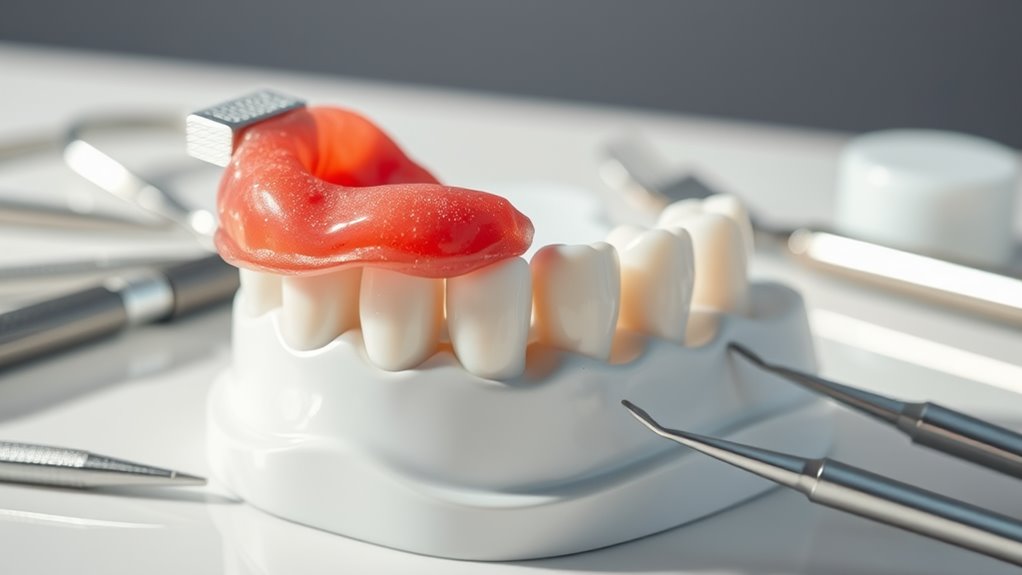Fluoride Is Poison. The Truth About Fluoride You Need to Know!
While fluoride can help prevent tooth decay in small amounts, you’ll want to be aware of its risks and hidden sources. Research links excessive fluoride exposure to lower IQ scores in children, endocrine disruption, and skeletal problems. You’ll find it in more than just tap water – it’s in non-stick cookware, processed foods, some medications, and conventional produce. Understanding where fluoride lurks helps you make informed choices for your health.
The History of Fluoridation and Public Health Policy
While many Americans assume fluoridation has always been part of public water systems, it didn’t begin until 1945 in Grand Rapids, Michigan. The U.S. Public Health Service initiated this program as an experiment to prevent tooth decay, marking the start of widespread water fluoridation across America.
You might be surprised to learn that dental products didn’t contain fluoride until the 1950s. The government’s push to add fluoride to water supplies stemmed from research showing naturally fluoridated areas had fewer cavities.
Understanding Fluoride: Chemical Properties and Common Sources
Fluoride, a highly reactive halogen element, exists naturally in rocks, soil, and water across the Earth. You’ll find this ionic form of fluorine in many everyday items, from drinking water to dental products. Its atomic number is 9, making it one of the most electronegative elements on the periodic table.
You’re exposed to fluoride through multiple sources in your daily life. It’s present in foods like fish, tea leaves, and certain vegetables grown in fluoride-rich soil. Many processed foods and beverages made with fluoridated water contain this compound.
Industrially, fluoride compounds are used in the production of non-stick cookware, pesticides, and pharmaceuticals. The most common fluoride compounds you encounter are sodium fluoride, calcium fluoride, and fluorosilicic acid, which are added to public water supplies.
Health Risks and Studies: What Research Really Shows
A growing body of scientific research has revealed concerning links between fluoride exposure and various health conditions.
Studies published in respected medical journals suggest that excessive fluoride intake may pose risks to your health, particularly during critical developmental stages.
-
Harvard researchers found that children in high-fluoride areas had significantly lower IQ scores than those in low-fluoride regions.
-
The National Research Council identified fluoride as an endocrine disruptor that can affect thyroid function and bone health.
-
Recent studies indicate potential connections between fluoride exposure and ADHD, cognitive impairment, and skeletal fluorosis.
While low-dose fluoride in dental products can help prevent tooth decay, you should be aware of potential risks from chronic exposure through drinking water and other environmental sources.
Hidden Sources of Fluoride in Everyday Products
Beyond the obvious sources like tap water and toothpaste, you’ll find fluoride lurking in many everyday items that you mightn’t expect.
It’s present in non-stick cookware coatings, processed foods made with fluoridated water, and tea leaves that naturally absorb fluoride from soil.
You’re also exposed through pesticide residues on conventional produce and mechanically separated meat products.
Many pharmaceutical drugs contain fluoride compounds, including popular antidepressants and antibiotics.
If you’re drinking bottled beverages or eating canned foods, they likely contain fluoride from the processing water.
Even seemingly innocent items like dental floss and mouthwash often have added fluoride.
When you use these products regularly, your total fluoride exposure can quickly exceed recommended safety limits.
Natural Alternatives for Dental Health Without Fluoride
Many effective natural alternatives can protect your teeth without relying on fluoride products. You’ll find several time-tested methods that indigenous cultures have used for generations to maintain strong, healthy teeth.
Natural minerals like calcium, phosphorus, and magnesium play crucial roles in dental health when combined with proper nutrition and oral hygiene practices.
-
Oil pulling with coconut or sesame oil for 15 minutes daily removes harmful bacteria and strengthens tooth enamel.
-
Green tea contains powerful antioxidants that fight cavity-causing bacteria while reducing inflammation of gums.
-
Natural tooth powders made from bentonite clay, activated charcoal, and herbs like neem and mint provide gentle yet effective cleaning.
Consider incorporating these natural approaches into your daily routine while maintaining good brushing and flossing habits for optimal dental health.
How to Minimize Your Daily Fluoride Exposure
While fluoride exposure comes from multiple sources in modern life, you can take practical steps to reduce your daily intake. Start by filtering your drinking water with a reverse osmosis system and switching to fluoride-free dental products. You’ll also want to be mindful of foods and beverages that typically contain high fluoride levels.
| Source | How to Minimize Exposure |
|---|---|
| Water | Use reverse osmosis filters |
| Dental Care | Choose fluoride-free toothpaste |
| Foods | Avoid processed items with fluoridated water |
| Beverages | Skip black/green tea, opt for herbal tea |
Check product labels carefully and don’t be afraid to contact manufacturers about fluoride content. Consider growing some of your own produce to avoid fluoridated water used in commercial farming. When dining out, request filtered water and ask about cooking methods.




